Meet Mamud
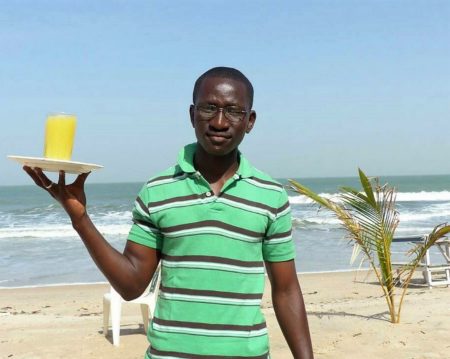
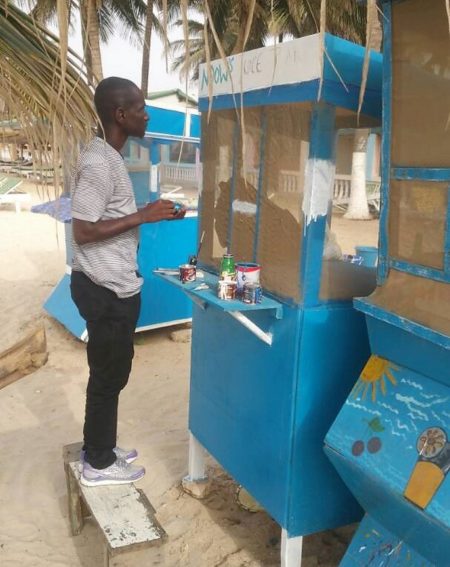
Mamud Ndow contacted me through my blog – he wanted to learn about the gardening techniques I have written about. At 31 he is a very enterprising young man, finding ways to make a living promoting agriculture products. He sells fresh juice during the tourist season on the beach in front of the hotels near Kombo. He is also working on starting an umbrella organization, so that many entrepreneurs can come together, to market their products under one brand. His brand name will be Teeki, which means prosperous in the local Wolof language. His main challenge is funding and he is seeking investors interested in supporting start-up entrepreneurs building SMEs (Small Medium Enterprises).
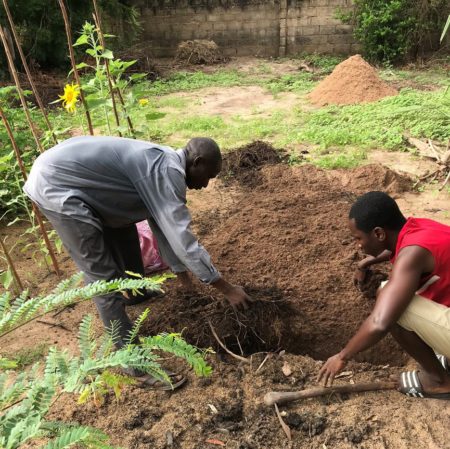
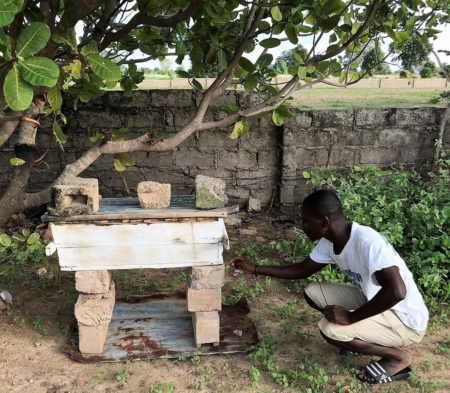
His family compound and gardens are close to the school where I work in Farafenni. He helped my counterpart, Jatta, and me with several tasks, including preparing a permagarden bed for me. I am very impressed with his desire to learn new skills, and I enjoyed visiting his home garden. He has a nice walled garden, several bee hives, and good family support for his projects. I invited him to attend a workshop with me at Massembeh to learn about the advantages of raising local chickens, tree grafting, and growing the orange flesh sweetpotato (OFSP).
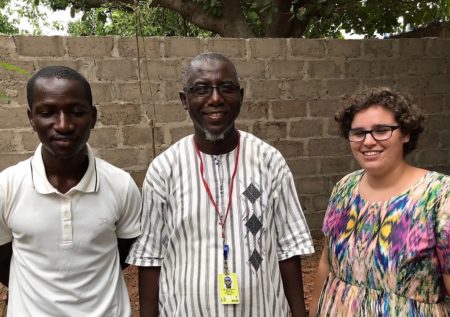
The four day workshop began with Callie, a second year Agriculture PCV specializing in animal health, giving a two day presentation on the advantages of raising local chickens. Saikou, the Agriculture Program Manager, emphasized the Peace Corps mission of helping the local people with projects that are realistic and sustainable. He talked about past attempts by the government or an NGO to start a large scale chicken operation with imported birds, and we discussed the multiple reasons this approach has not been successful. Imported birds are not generally suitable for this climate, they need expensive feed and medications, and can require resources most local farmers don’t have access to, such as reliable electricity for refrigeration and dependable markets.
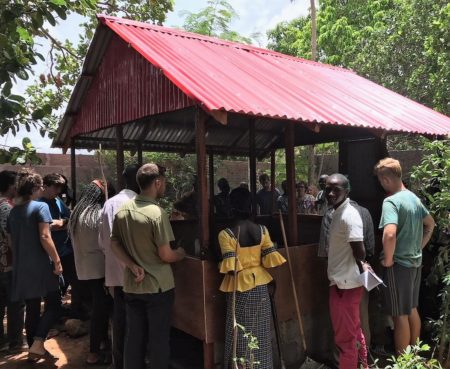
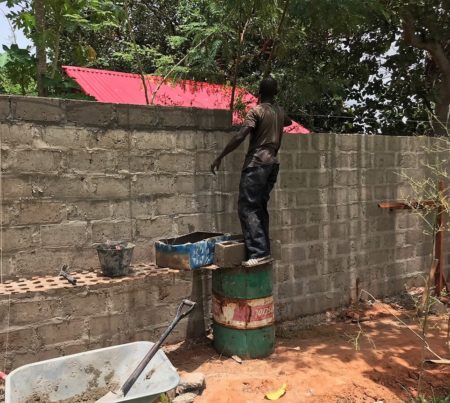
We toured the new Massembeh chicken house, funded with a Food Security Grant, to promote raising local chickens in a sustainable manner. This demonstration facility is top of the line because it required purchasing wood for framing and has an high block wall for security. Most local farmers will have their chicken house in the family compound where lots of people are always present to supervise the chickens. The workshop also included how to build a chicken house from local materials, to address the realist and sustainable goal. The participants were divided into three groups, and each group harvested poles from the grounds, and practiced building a simple chicken house. There wasn’t time to complete the houses, but everyone gained valuable skills and the confidence to go back home and use locally available materials to start their own chicken facility.
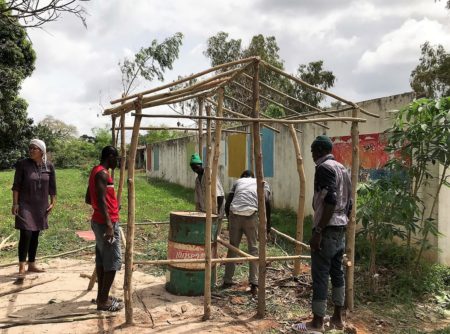
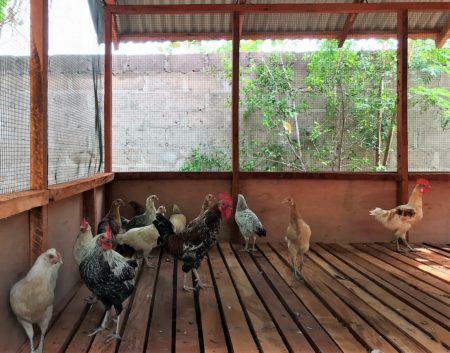
Callie talked about how to select healthy chickens from local sources, recognizing and preventing diseases, hygiene, and seasonal maintenance of the facility. She also covered the care and feeding of the flock, the importance of always providing fresh clean water, the raising of chicks, egg production, and marketing of surplus eggs and birds. An optimum family flock of up to 20 birds, could be maintained with feed produced on the farm, such as coos, rice, millet, peanuts, surplus garden produce and kitchen scraps. If farmers are successful on a small scale, and have developed a sustainable market for their product, expansion will be an option with minimal risk.
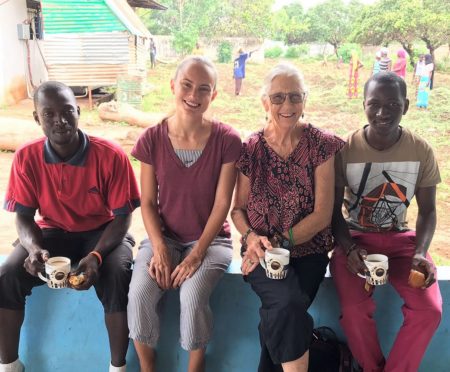
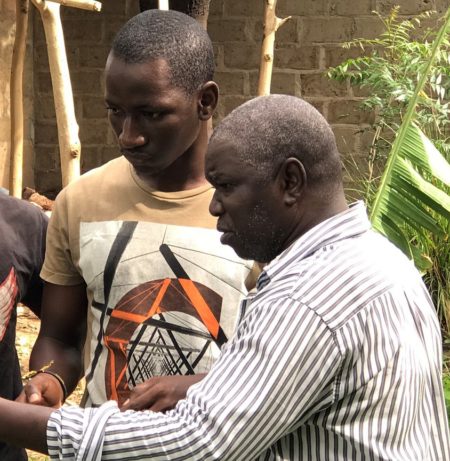
For the last two days of the workshop, Mamud’s brother Mballa and Health PCV Caitlyn (who also lives in Farafenni) joined us for the gardening demonstrations. Bah2 started his portion of the workshop talking about the gardening calendar, what crops are best planted in the rainy season and which crops do best in the dry season if a farmer has adequate water resources. He covered starting tree nurseries for live fencing, fruit and nut production, and the importance of combating deforestation. He gave an abbreviated version of the OFSP presentation I recently attended, discussing garden bed prepartion, planting methods, and propagating techniques. We were again divided into three groups to cook the same delicious dishes as before – please see my previous OFSP post for photos and recipes.
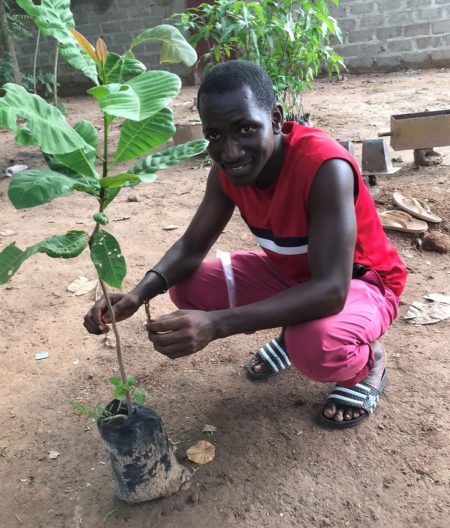
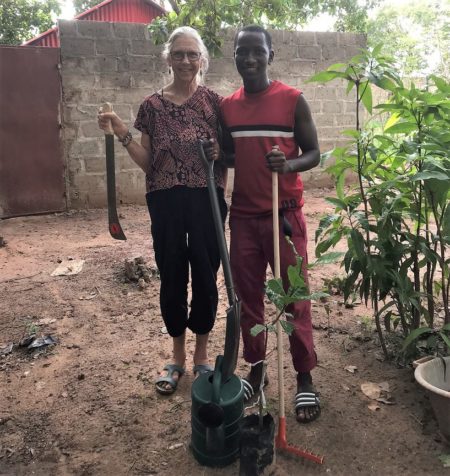
During the last session of the workshop cashew tree grafting was demonstrated, and everyone was able to practice that skill and learn the benefits of grafting. A grafted tree will produce sooner and a farmer will be able to select the best varieties for their location. I am always so impressed with the interest the locals display at these workshops, and they were all rewarded with gardening supplies to take home – a cutlass, shovel, rake, watering can, poly bags to start trees in, OFSP cuttings, vegetable seeds, and the tree they grafted. Another very successful PC workshop!
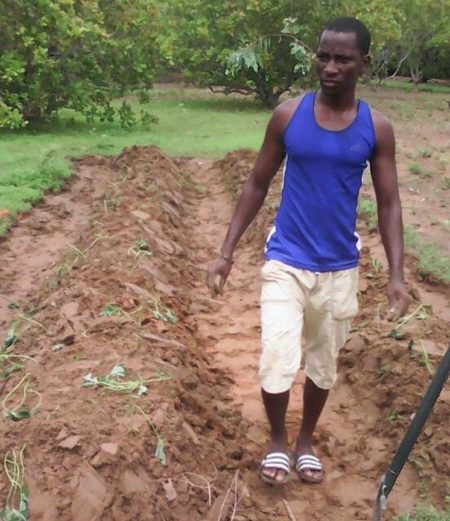
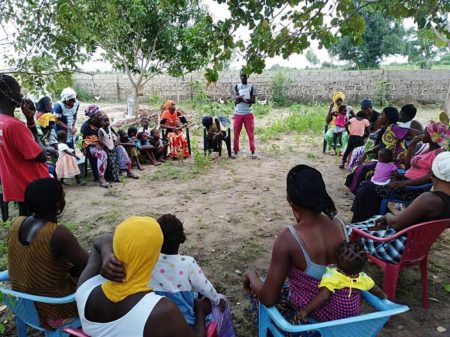
The day Mamud returned home from the workshop he prepared a garden bed for his OFSP cuttings, planted his grafted cashew tree, and planted his poly pot bags with tree seeds. He is committed to giving back to his community, and organized a training for the village women to share the information he had learned at the workshop. He works with several youth organizations, and at the end of the month one of the group will be planting trees to combat deforestation. He also is a First Aid Trainer with The Gambia Red Cross Society. He has excellent English language skills, speaks several local languages, and has taken computer and marketing classes to be able to promote his business ideas. He is currently researching funding to purchase his own fenced farmyard, supplies to build a chicken facility, and a borehole to supply water year round water. Please contact me if you are interested in supporting this young man with a very bright future.
The main reason I am writing this blog is to address the third PC goal: “To help promote a better understanding of other peoples on the part of Americans.” But working with Mamud has shown me that my blog can also address the first PC goal: “To help the people of interested countries in meeting their need for trained men and women.” I am continually surprised to see where twists and turns of this PCV journey are taking me.
6 thoughts on “Meet Mamud”
Very interesting – another great blog post. I always look forward to hearing what you have to say. How are you doing with your language skills? Are you able to communicate effectively with the local people?
Dave – My Mandinka is just basic greetings and simple communications. Most people in Farafenni speak Wolof, and I have learned some Wolof to talk to the people in the market. The students at my school need to know English to pass their exams, so I figure I’m helping them out by speaking to them in English. I was put in a Mandinka language group, because I live with a Mandinka family, although they also speak Wolof. There are 5 major languages in The Gambia and most people speak at least 2 or 3 of them. I am impressed with the PCVs that have mastered a language, but have decided there are other things I am good at besides being proficient in Mandinka. – Susan
That is so amazing. It is great to see the community coming together. Wonderful to see young people like Mamud so interested in being productive. Great work Susan!!
Good project. It is fun to see all you are doing. Thanks
Thanks so much Susan, I really appreciate your effort.
I thoroughly enjoy your blog, Susan. You write just as if you are explaining it in person. That is a great feat. I just with read with great interest this one and the one on the rainy season. Enjoy your vacation!
Comments are closed.